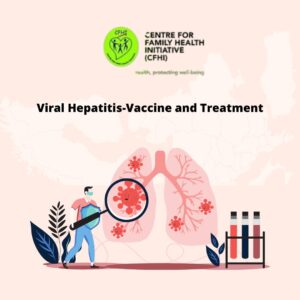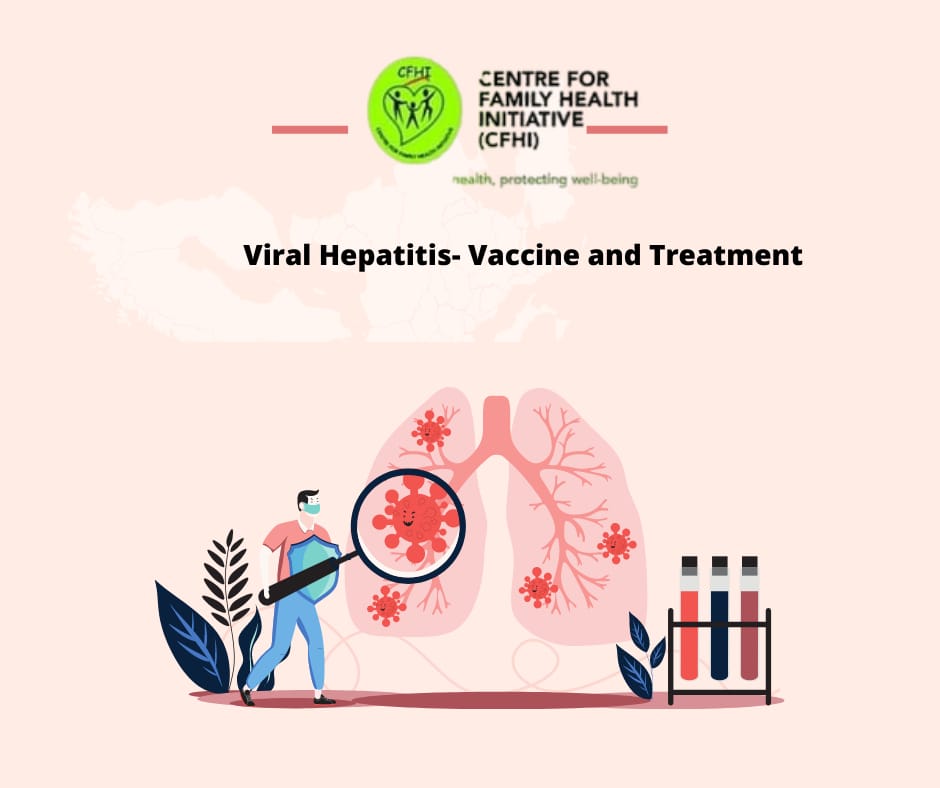Welcome to today’s Monday Health Burst on Viral Hepatitis Vaccination and Treatment. The vaccination and treatment for hepatitis differs depending on the type of virus.
Hepatitis A has no specific treatments. The body usually clears up the virus within 6 months of contraction, without leaving a lasting damage on the liver. However, resting, managing nausea, avoiding alcohol and use of medications could help. Currently, the two known types of hepatitis A vaccine include a single-dose vaccine which is given as two shots, 24 weeks apart, and a vaccine combination that can protect against both hepatitis A and hepatitis B. The combination vaccine can be given as three shots over 6 months.
Haptieties B vaccine is available for all age groups. However, the treatment of Hepatitis B may be life long. This is to ensure that the infection does not develop to something much worse and that the infection does not spread to other people. These treatment may include: Antiviral medications, Interferon injections and Liver transplant.
The most effective therapy for hepatitis C is a drug combination consisting of pegylated interferon and ribavirin. Pegylated interferon is taken weekly as an injection and ribavirin is a twice daily tablet. The treatment is a form of chemotherapy and the ability to tolerate it varies widely for each person. There is currently no vaccine for hepatitis C, but the best way to prevent hepatitis C is by avoiding behaviors that can spread the disease, especially injecting drugs. It is important to carryout routine testing for hepatitis C, because treatments can cure most people with hepatitis C in 8 to 12 weeks according to research.
For Hepatitis D, Pegylated interferon alpha is the generally recommended treatment. Treatment should last for at least 48 weeks irrespective of the patient’s response. Though virus tends to give a low rate of response to the treatment, the treatment is associated with a lower likelihood of disease progression, according to National Center for Biotechnology Information. There is also no vaccine to prevent hepatitis D yet, however, a report by Centre for Disease Control shows that prevention of hepatitis B with hepatitis B vaccine also protects against future hepatitis D infection.
There is no specific treatment capable of altering the course of acute hepatitis E, as the disease is usually self-limiting. Hospitalization is generally not required. Most important is the avoidance of unnecessary medications. Acetaminophen, paracetamol and medication against vomiting should be used sparingly or avoided.
Hospitalization is required for people with fulminant hepatitis and should also be considered for symptomatic pregnant women. Immunosuppressed people with chronic hepatitis E benefit from specific treatment using ribavirin, an antiviral drug. In some specific situations, interferon has been used successfully. A vaccine to prevent hepatitis E virus infection has been developed and is licensed in China, but is not yet available elsewhere.
Monday Health Burst is an initiative of CFHI to address issues of basic health concern. Join us every Monday on all our social media platforms for more episodes.
#StillOnViralHepatitis #Vaccine #Treatment #WHD2022 #BB9ja



